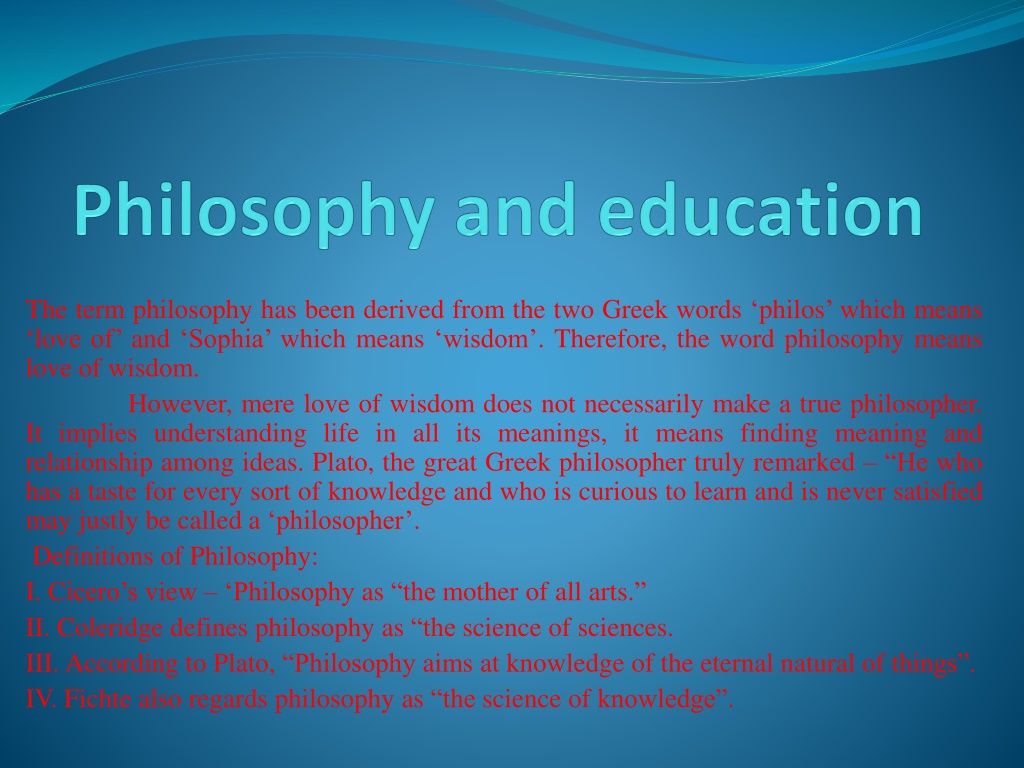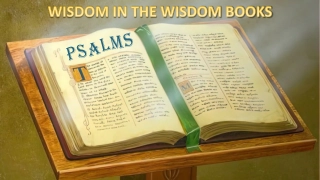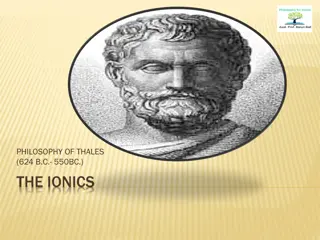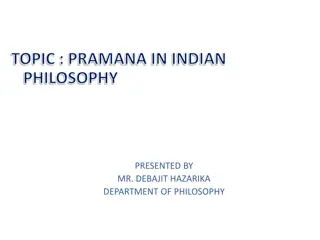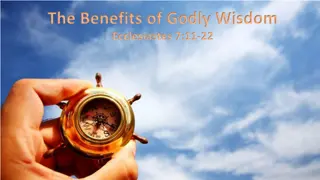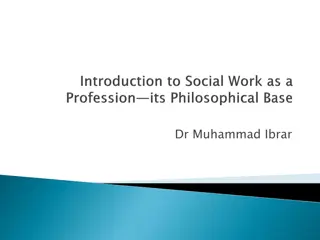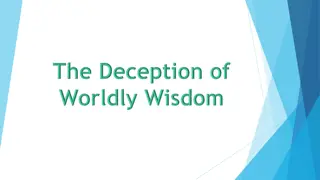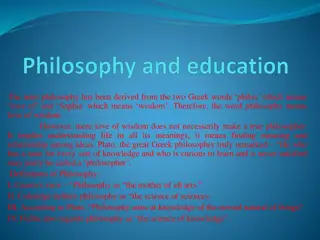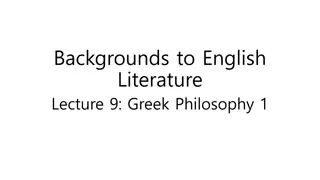Understanding the Essence of Philosophy: Love of Wisdom and Pursuit of Knowledge
Philosophy, derived from Greek words meaning "love of wisdom," encompasses a deep understanding of life's meanings and the interconnections among ideas. It is more than mere curiosity but a pursuit of knowledge encompassing all aspects of existence and truth. Indian philosophy views it as a vision of life's essence, aiming to answer the fundamental questions of human existence. The nature of philosophy is reflective and inquisitive, guided by reason and aimed at synthesizing knowledge from various disciplines. The scope of philosophy has broadened to include metaphysics, exploring values, theology, the soul, the universe, and creation.
Download Presentation

Please find below an Image/Link to download the presentation.
The content on the website is provided AS IS for your information and personal use only. It may not be sold, licensed, or shared on other websites without obtaining consent from the author. Download presentation by click this link. If you encounter any issues during the download, it is possible that the publisher has removed the file from their server.
E N D
Presentation Transcript
The term philosophy has been derived from the two Greek words philos which means love of and Sophia which means wisdom . Therefore, the word philosophy means love of wisdom. However, mere love of wisdom does not necessarily make a true philosopher. It implies understanding life in all its meanings, it means finding meaning and relationship among ideas. Plato, the great Greek philosopher truly remarked He who has a taste for every sort of knowledge and who is curious to learn and is never satisfied may justly be called a philosopher . Definitions of Philosophy: I. Cicero s view Philosophy as the mother of all arts. II. Coleridge defines philosophy as the science of sciences. III.According to Plato, Philosophy aims at knowledge of the eternal natural of things . IV. Fichte also regards philosophy as the science of knowledge .
Indian Approach to the Meaning of Philosophy: According to Indian approach, philosophy is tattue darsana or vision of like. Indian rights and saints expressed in darsana those experiences which they had themselves perceived. Indian tradition is more inclusive and comprehensive in as much as it includes all aspects of life. Dr. S.P. Chaube is right when he says that Indian conception of philosophy darsana is such a conceptualization of truth which is expressed by the viewer by seeing. Dr. Radhakrishnan (the philosopher president of India) also says that Darsana is a logical exposition of the nature of reality. In short, philosophy is an attempt to answer all the questions of life. This is so, because human mind is moved by intellectual curiosity and by the desire for order. In other words, philosophy enables man to understand the sum of things of which we as individuals are only a part. Philosophy gives meaning to human experience: it is a way of life, so to say.
Nature of philosophy: Whenever it is asked regarding a science as to what is its nature, it is said that it is scientific. Thus, the nature of psychology sociology, economic, political sciences and other social sciences is scientific. Similarly, if it is asked as to what is the nature of philosophy, a natural answer will be that it is philosophical. In order to understand the scientific nature of science we have to understand scientific method, scientific attitudes, scientific problems and scientific activities. Similarly, in order to explain that the nature of philosophy is philosophical, we will have to explain the philosophical problems, philosophical attitudes and philosophical activities etc. philosophical problems are the general problems of different philosophical sciences. In its critical and synthetic aspects the problems of philosophy are the examination and synthesis of the postulates and conclusions of different sciences. Philosophical attitude is reflective, curious, tolerant guided by experience and reasoning and persistent effort to reach the truth though never in a hurry to arrive at conclusion.
Scope of philosophy: The scope of philosophy has increased manifold. Its includes the following three major categories (branches)- 1. Metaphysics (Belief about values): The thing, which is beyond our physical reach, is metaphysics. It has five parts- (a) Theology: It deals with nature and existence of God, his wishes and commands, his power and his relation to the universe, especially to humans. (b) Concept of soul: Here we study the purpose and role of living organisms, existence of soul and its relation to the moral body. (c) Science of universe: It deals with the origin and end of the universe. (d) Science of creation: How this universe has been created and how will it come to an end etc. be discuss here. (e) Cosmology: It deals with the creation of cosmos, other living, and non-living things. 2. Epistemology (Belief about knowledge): Here we study about human intelligence and his capacity to acquire knowledge, nature and verification of evidence and knowledge and various methods of knowledge, acquisition. 3. Axiology (Belief about reality): It covers different type of values and ideas of life. Three things are included in this branch of philosophy. They are (a) Logic: It determines real nature of a thing and conclusion is drawn through inductive, deductive methods. Imagination and reasoning dominates in this method of enquiry. (b) Ethics: It is concerned with the conduct of man in the society by demarcating a line between good and bad. (c) Aesthetic: It is concerned with the problems of beauty. Thus, we see that the scope of philosophy is the entire sphere of life ranging from this world to the other world.
Education and philosophy are very closely related to each other though there seems to be a lot of difference between the two one is theoretical while the other is practical philosophy provides the purpose or aim and education puts into practice. In the words of Prof. B.N. Desh, Philosophy and education are related like flower and fragrance, skeleton and flesh and blood, shadow and substance. They are two flowers of one stem, two sides of a coin. The former is the comprehensive side, while the latter is the active side of the coin. He further says, Their relationship is just like the relationship between the Lame man who is unable to walk but able to see, and the blind man who is able to walk but unable to see. In order to reach the destination the blind and the Lame should co operate each other? The lame will show the direction and the blind will move accordingly. Philosophy will show the direction and education will proceeds on in that direction. Education without philosophy is blind and philosophy without education is invalid or lame. Thus, education is the dynamic side of philosophy in action. This relationship has given birth to a new subject known education philosophy.
Thanking You Presented by- Dr M. U. Akanda Dept of Education. Salbari College, Salbari.
